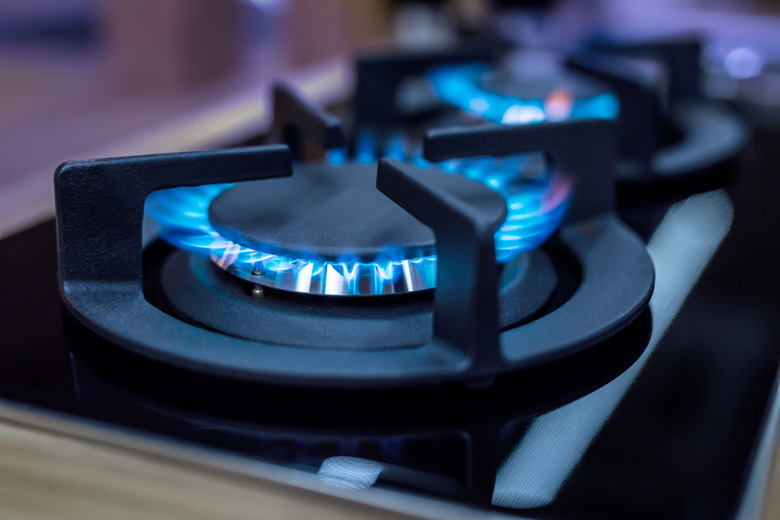Advantages & Disadvantages Of Using Propane
Propane is a gas, although it can be converted into a liquefied form. It is a byproduct of petroleum refining and natural gas processing. Propane is widely used as a fuel for central heating, barbecue sets, engines and portable stoves. When butane is added to propane it is liquefied and known as LPG, liquefied petroleum gas. Propane was first identified in 1910 and was patented as a process of extraction in 1913. By the 1920s it was in mass production and being used in millions of homes in the United States.
Supply
Supply
Propane is plentiful in supply but limited in its potential because it is a byproduct of petroleum refining. Its supply and availability is closely tied to the supply and availability of petroleum. While petroleum is widely available as a source of fuel, so is propane. However, where (or when) petroleum is in short supply, propane cannot be relied upon to be a suitable alternative fuel because its supply will in turn be affected by the shortage of one of the key components necessary for its production.
Price
Price
A major advantage of using propane fuel is that it is relatively cost effective. For the money paid, it produces many more units of energy than many other fuel sources. It is an efficient-burning fuel, and propane appliances have a much shorter energy savings payback period than many other fuel sources. This means that the initial outlay to provide the equipment for propane burning pays for itself more quickly once the cheap price of the actual fuel is taken into account.
Safety
Safety
Propane is quite a safe energy source, but it does have risks. It is combustible, and as with any flammable gas a leak can be potentially devastating. It is heavier than air, so any propane leak in an enclosed area will sink and become concentrated at the floor level, where it may avoid detection. Also, propane is stored under high pressure, making any sudden decompression or rupture of its container an event of violent force.
Environment
Environment
A major advantage of using propane gas as fuel is that compared to many other fuel sources it is environmentally friendly. In practical terms this means that it meets the clean air energy standards of the Environmental Protection Agency. It is nontoxic and soluble in water, and because it is a gas it cannot spill, form pools or leave environmentally damaging residues.
Cite This Article
MLA
Fitzgerald, Helen. "Advantages & Disadvantages Of Using Propane" sciencing.com, https://www.sciencing.com/advantages-disadvantages-using-propane-12028888/. 13 March 2018.
APA
Fitzgerald, Helen. (2018, March 13). Advantages & Disadvantages Of Using Propane. sciencing.com. Retrieved from https://www.sciencing.com/advantages-disadvantages-using-propane-12028888/
Chicago
Fitzgerald, Helen. Advantages & Disadvantages Of Using Propane last modified March 24, 2022. https://www.sciencing.com/advantages-disadvantages-using-propane-12028888/
